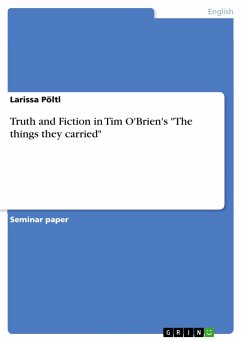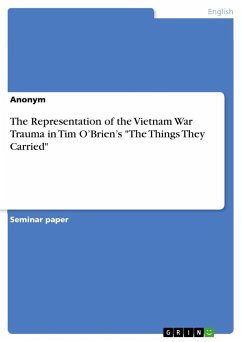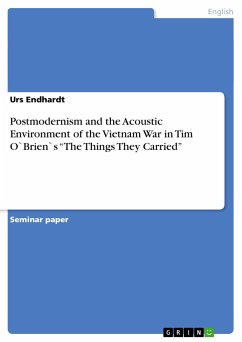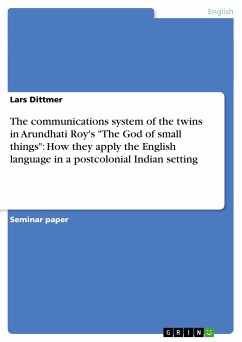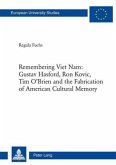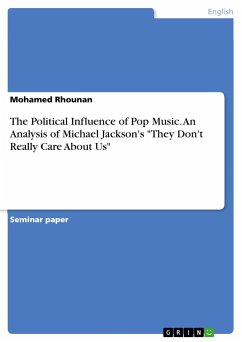Seminar paper from the year 2011 in the subject American Studies - Literature, grade: 2,7, University of Mannheim (Anglistisches Seminar), course: In Times of Crisis. Representations of War in American Literature and Film from the Civil War to Iraq, language: English, abstract: In the book "The things they carried" by Tim O'Brien the narrator says that a good war story is never true. He admits that nearly everything in the book is made up, after saying that it is true before. However, the reader learns that not until the 7th chapter, in which O'Brien, the narrator, tells the reader that everything up to now has been invented. Similarly, he leaves open if some things are true or not. Even the narrator, who is named like the author himself, is made up and has no or little similarity to the author, e.g the author O'Brien does not have a daughter, whereas the narrator O'Brien does.Reading "The things they carried", a question keeps coming up again and again: Why does he do that? Why does Tim O'Brien, the narrator, constantly tell the reader that everything is made up? It does not make any sense. The reader just gets confused.In addition to this question, I found myself wondering if there was a clear difference between truth and fiction in the book, namely if you could say this is true and this is untrue and this is certain and this is uncertain. And if yes, was it O'Brien's intention to draw this clear line, or did it just happen by accident? Of course, one cannot know everything for certain and no one can look into O'Brien's brain, but you can make assumptions based on the knowledge you have.In my paper I will focus mainly on the aspect why the principle of truth and fiction is used in The things the carried and which effects come out of that. I think this is very interesting, because, in my opinion, this is the main aspect of the whole book. Someone who reads it will not be able to stop themselves from asking questions in their head. The main process while reading is that you just keep asking yourself these questions again and again and you cannot find any answer to them. My goal, however, is not to find any answers, but to try to explain this aspect truth and fiction as a whole and to examine what it might contribute to describe the Vietnam war.

